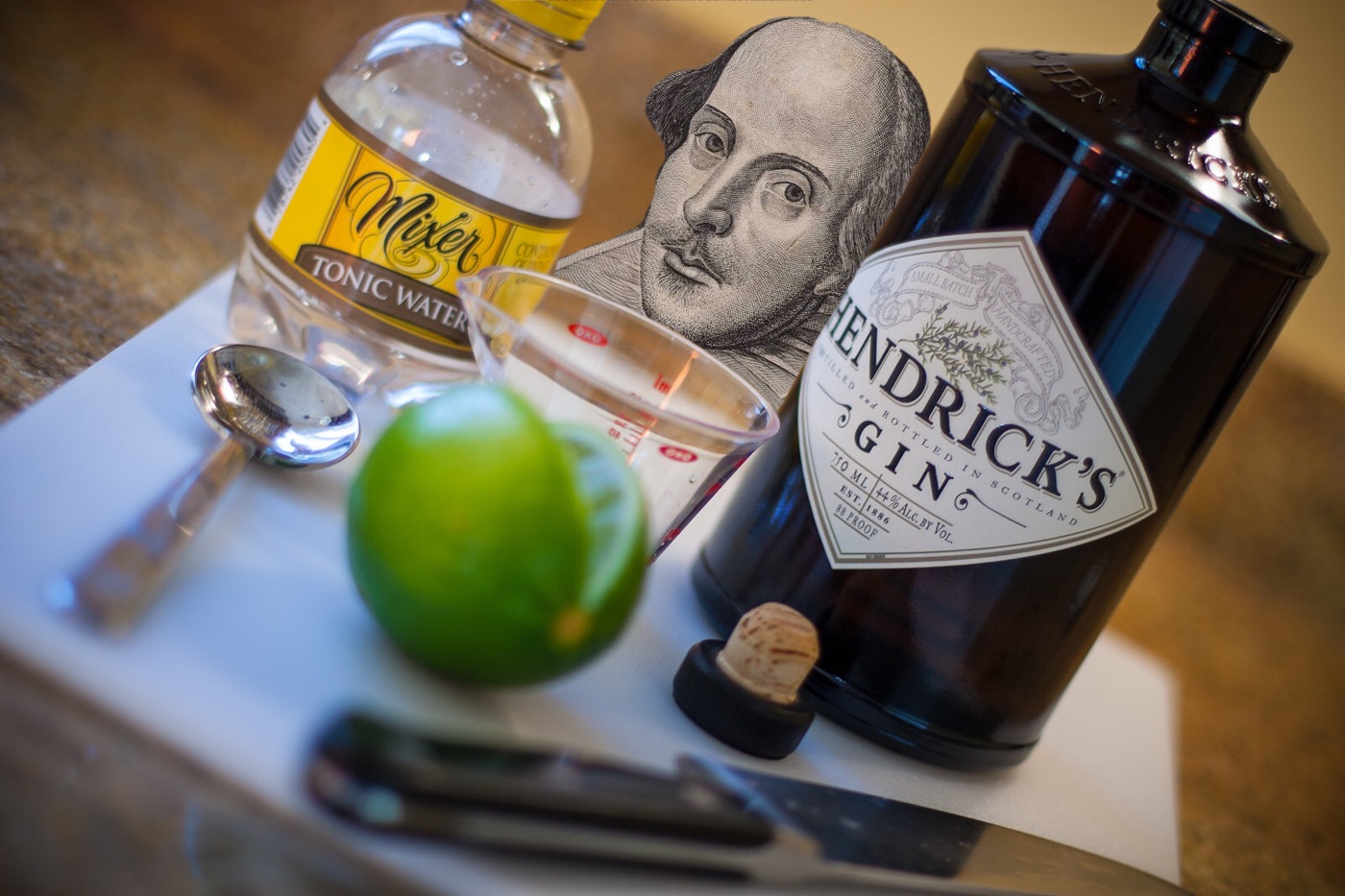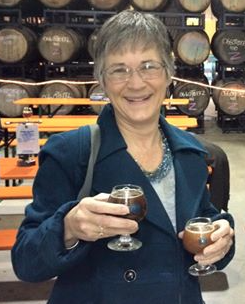In Your Cups: Silver linings & Shakespeare, the nation’s fastest-growing craft beverage & a sweet pair
Hoo boy, there’s a lot of sweet stuff to drink.

Photo by: Robert S. Donovan
A vein of silver
Unless you’ve been away from Virginia or in solitary confinement, you’ve experienced the commonwealth’s recent below-normal sub-freezing temperatures. For most of us, those temperatures are merely another complaint for water-cooler chatter. For those who rely on the land for their living, though, adverse weather can be devastating. And that includes Virginia’s cideries and wineries.
“Peaches, apples, grapes and berries were hit particularly hard since they are more sensitive to frost,” reported The Roanoke Times. “A Virginia Cooperative Extension agent in Fluvanna County reported an estimated 100 percent loss of the county’s peach crop and 50 percent to 75 percent losses for apples.”
Some fruits may be resurrected thanks to a natural occurrence – in vineyards called the “second bud” and in apple orchards the “second blossom.” That’s where Courtney Mailey, owner of Richmond’s Blue Bee Cider, finds a silver lining.
At a recent Virginia Cooperative Extension Fruit School meeting, Dr. Jim Schupp of Penn State spoke of freeze recovery to fruit tree growers.
“My key takeaway is that the freeze did our thinning for us,” Mailey reported. “Fruit trees tend to produce 800 percent more blossoms than they can carry to fruition. In normal years this means that we thin off lots of excess fruit to improve the survival and size of the remaining fruit. This year even with 80 percent blossom loss, if the remaining 20 percent are all pollinated, it might still be too much for a tree to carry to fruition. Schupp’s words, based in scientific research helped to change our outlook, ‘Focus on what is living, not what is dead.'”
Besides hope for those of us looking forward to 2016 batches of apple cider and wine, Mailey’s words offer positive lessons for all of us: “While I certainly don’t want this level of drama to be the norm for us, it does drive home powerful lessons about those silver linings, our secondary blooms. New friendships, new solutions, new ciders, new hope; they are new every morning, every day.”
The Month of the Bard
Four hundred years ago this month, William Shakespeare, the Bard of Avon, died. For those who suffered through study of his plays and sonnets in school, his death came too late.
Whether you’re a fan or not-celebrating April as his birth month or grateful that his writing came to an end-you can make toast to the Bard in the British manner. Without getting too caught up in Elizabethan times (who wants to suffer plagues, dirty water, and lack of sewage systems?), here are a few suggestions for tipping ye ole hat to the land of Shakespeare.
- Enjoy a gimlet, the gin and lime cordial that was used by the British Royal Navy to fight scurvy. London dry gin is an early English spirit, modified from Dutch and Flemish genever. The spirit’s overuse led to “Gin Lane,” an artist’s portrayal of the evils of the spirit; to gin’s moniker, “Mother’s Ruin”; and, after the government tried to control it, to the Gin Riots. Now that’s a history worth toasting.
- Mix a new cocktail from Shakespeare, Not Stirred: Cocktails for Your Everyday Dramas. Two New England English professors have created cocktails that the Bard would approve of (though admittedly historically inaccurate). For example, in the chapter “Lend Me Your Cheers: Party Like It’s 1599!” you’ll find Caliban’s Wrong Island Iced Tea, The Weird Sisters’ Blood and Hand Punch, and Prince Hal’s Tequila Son-Rise, plus party recipes for Crudité of Errors and Romeo’s Loaves at First Sight.
- Drink British-inspired cocktails such as Pimm’s cooler, gin and tonic, or sidecar.
- Seek out cider, a part of the culture of the British Isles for over two millenia. Even today, the United Kingdom drinks more cider than any other nation.
- Have hot tea with sugar and scones (a splash of a fine peach or raspberry liqueur and some fresh mint leaves couldn’t hurt).
- Buy tickets for the 2016 Richmond Shakespeare Festival at Agecroft Hall.
And you thought beer was growing fast
The beverage world is all abuzz about the growth of craft beer, artisanal ciders, and locally crafted spirits, but the fastest-growing segment of the U.S. alcohol industry is actually mead. The honey-based fermented beverage is often made with other delightful flavor ingredients, too, including spices, herbs and fruits.
“The world’s most popular beverage throughout most of recorded history nearly died out after the Middle Ages but now counts as the smallest but fastest growing segment of the American alcohol beverage industry,” reported the American Mead Makers Association.
The craft beer market increased 16% in dollar sales in 2015. The American hard cider industry reported an increase in gross sales of 82% from 2011 to 2012. Mead sales were up 130% from 2012 to 2013.
Besides Richmond’s Black Heath Meadery in Scott’s Addition, Virginia can boast nearly a dozen meaderies total, including Blacksnake Meadery, Maidstone Meadery, White Oak Mountain Meadery, Stonehouse Meadery, and Misty Mountain Meadworks.
A sweet pairing
On Sunday, May 1st, Blue Bee Cider pairs four of their ciders with four handcrafted treats from Gearharts Fine Chocolates. As guided tasting, the event will not only be delicious, but possibly with a touch of education added in. The pairing is $20 per person, with registration available online.
It’s going to be one sweet event!
-
Recommend this
on Facebook -

Report an error
-

Subscribe to our
Weekly Digest





Notice: Comments that are not conducive to an interesting and thoughtful conversation may be removed at the editor’s discretion.